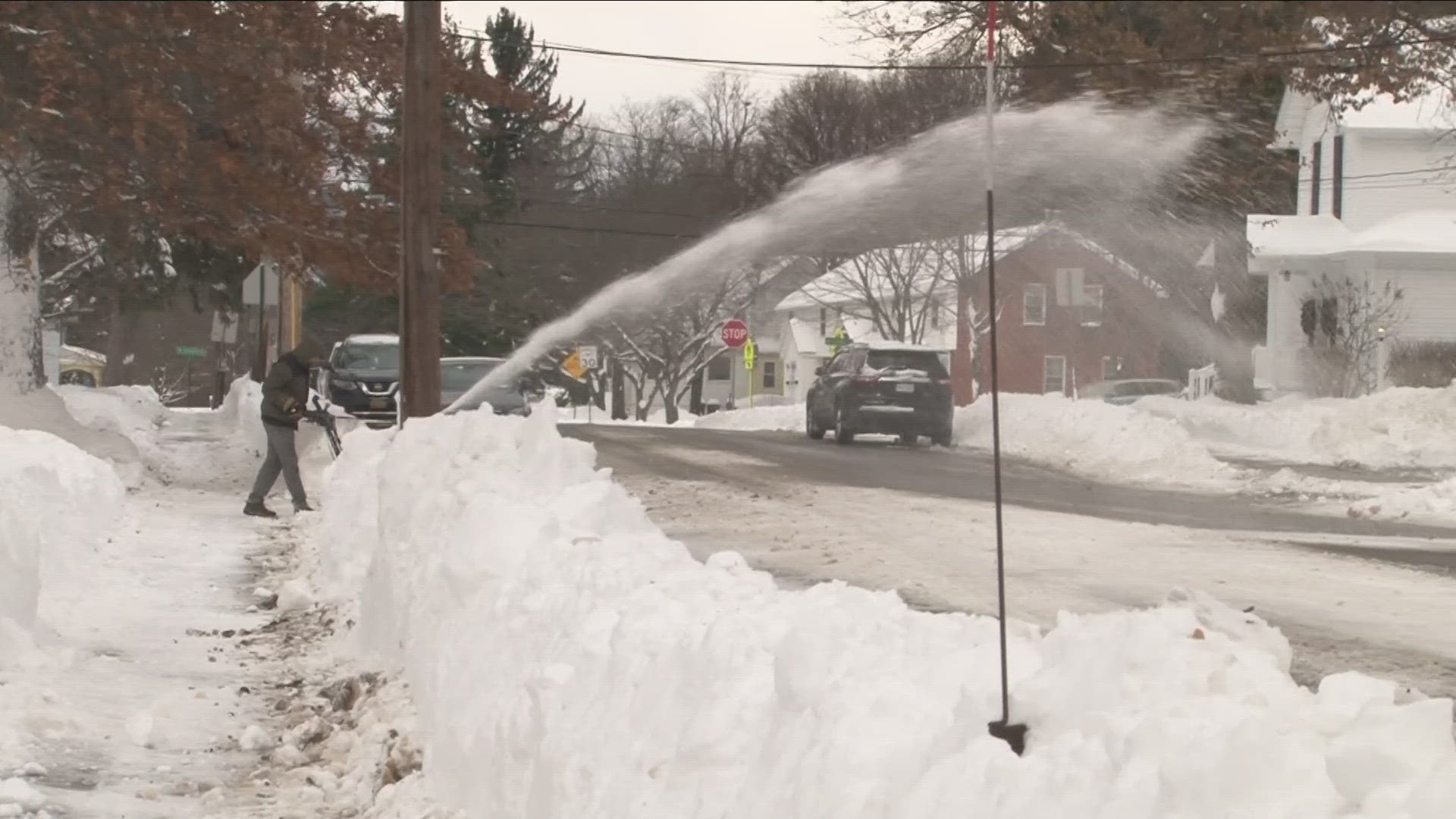ORCHARD PARK, N.Y. — Amidst the various issues with winter in Western New York, there is always the question of whether or not there will be snow days for school districts.
2 On Your Side spoke with a leading school superintendent about the challenges of doing so with a tricky element like lake effect snow which some southtowns experienced Monday evening.
With the sometimes hit-and-miss nature of lake effect bands, which is a forecasting science unto itself, school district leaders always have the difficult duty of determining with the weather just how bad things are for their districts. That includes busing and getting kids, teachers, and staffers safely to and from schools - all with at times rapidly changing road conditions.
Fifteen school districts, mostly in the southern tier, were on the WGRZ closing list on Tuesday. And in the immediate southtowns, Orchard Park, East Aurora, and Iroquois districts and Erie BOCES 2 did decide to close for the day while others stayed open including those in Hamburg.
Orchard Park got hit with over 14 inches and had many reported related road issues so there was a travel advisory in that community.
We checked in with Hamburg Central Superintendent Michael Cornell who is also the President of the Erie - Niagara School Superintendents Association.
Cornell notes: "We've all seen enough lake effect snow events over the course of decades to know that the snow is often very localized. And when the snow hits like it did last night - kind of surprisingly in terms of how intense it was for a little bit - you have one local highway department which is really well prepared and another one maybe not so. Or maybe you had some stranded cars that create a problem for one department of public works in one community and it might not be a problem somewhere else. So there's a lot of individual considerations that go into it."
Cornell said he did field some calls: "Maybe eight or ten folks called my office. I called them all back already and I helped them understand that in our particular instance you know we opened because the vast majority of the district was safe. We knew that it might be inconvenient in spots and it was. But safe - and even if it is a bit inconvenient - it means you open."
Cornell makes that call after also talking with his district transportation supervisor, the local Department of Public Works leaders, and sometimes other superintendents.
He tries to make that decision by 5:30 a.m. when buses are supposed to roll knowing that parents also have to make arrangements sometimes if kids are staying home.
And Cornell says he also realizes that for some kids a school lunch and support from staffers in school is sometimes something they really need and look forward to.
But of course, Cornell emphasized that safety is the primary consideration over everything. "Let's remember that the official term for a snow day is - it's an emergency closing day is what it is. So is the situation an emergency where it's just flat-out unsafe for kids, for staff, and for parents to open school? If the answer to that is yes it's unsafe - then we close. if the answer is it's safe then you open."

